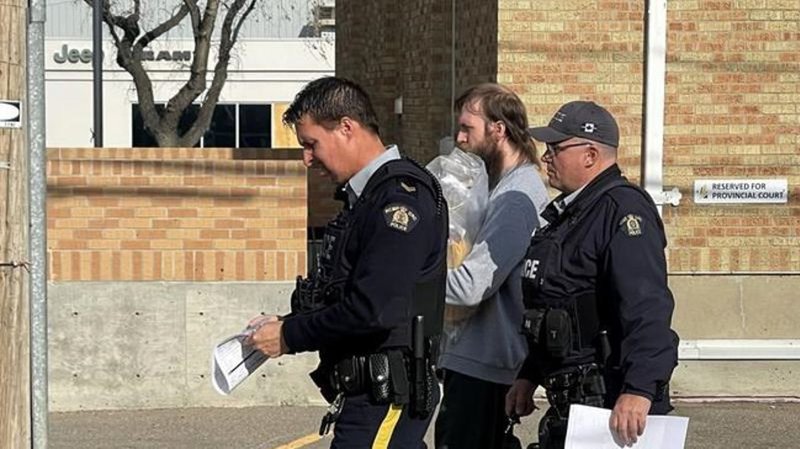
Mountie wears ‘thin blue line’ patch while escorting man convicted of hate crime
REGINA — A symbol that has been associated with white nationalist movements was recently worn by a Saskatchewan Mountie while escorting an inmate who had just been sentenced for hate speech.
The officer displayed a “thin blue line” patch on the left site of his hat Thursday, as he transferred Travis Patron back to jail from Court of King’s Bench in Estevan.
Patron, who formed the Canadian Nationalist Party in 2019 and led it in the federal election, was sentenced to one year in jail for hate speech against Jews. His far-right party was deregistered by Elections Canada this year, but it had previously pushed for a white ethnonational state dominated by Canadians of European descent.
The symbol of a horizontal blue bar across a monochrome Canadian flag has been co-opted by some white nationalist movements, while others see it as a way for police to honour fallen officers.


